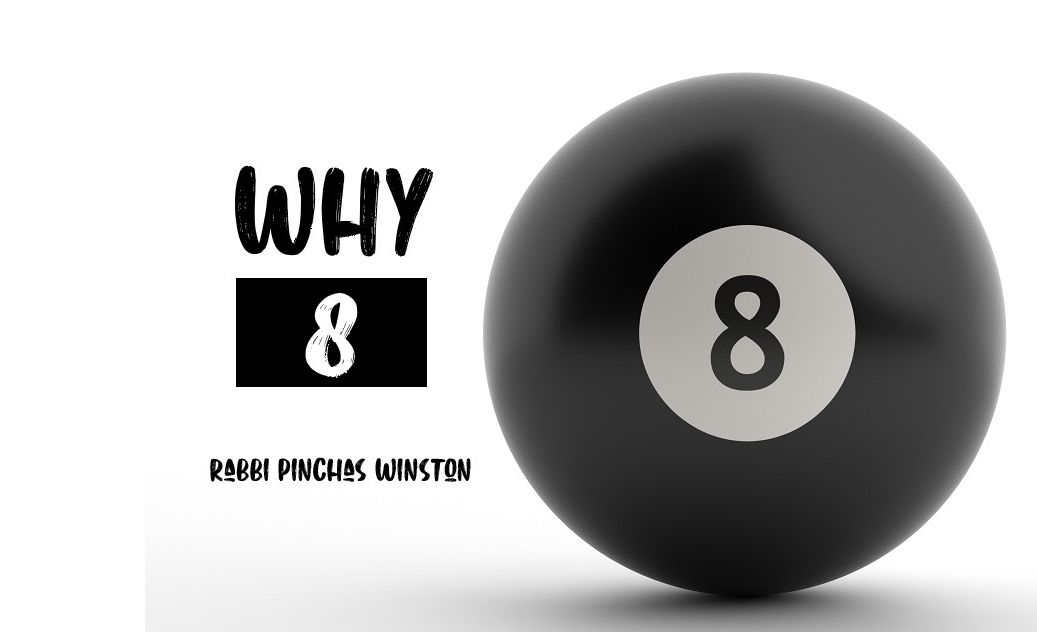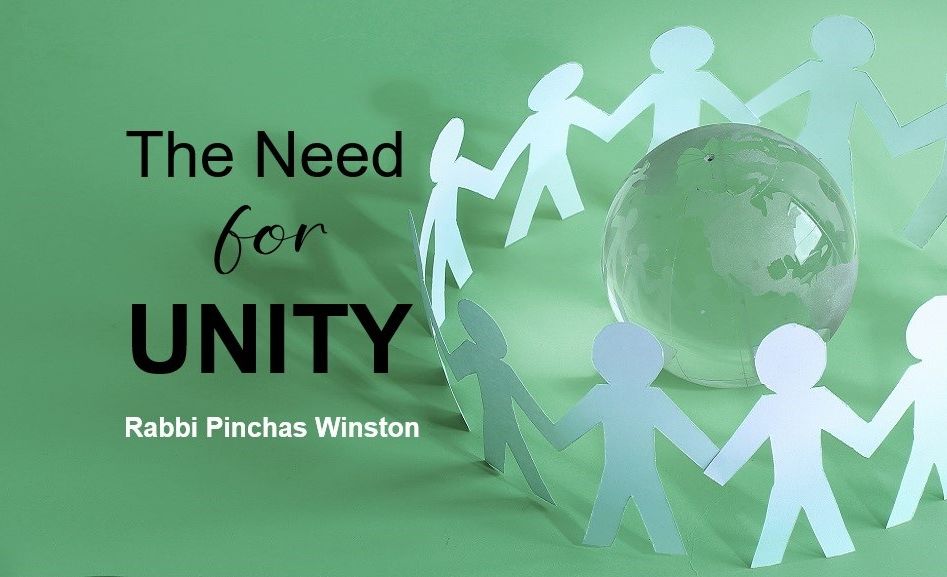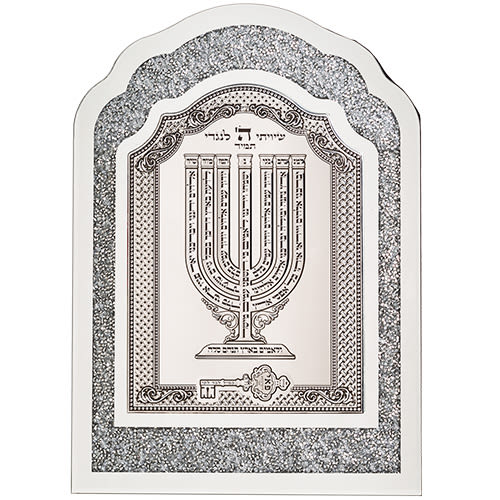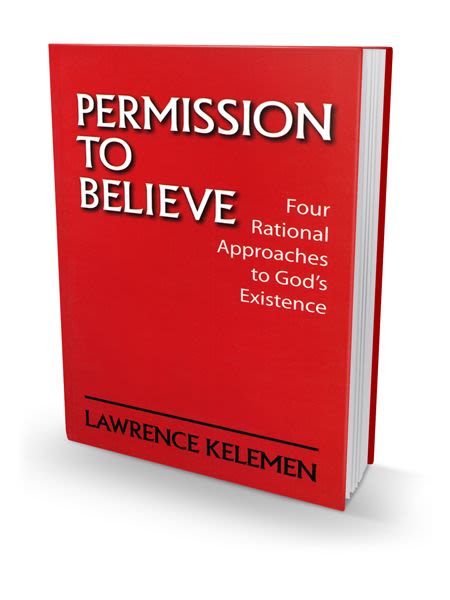
Beshalach: Elevate the Mundane
Oh, the drama of it all. There were the Jewish people, fleeing the mightiest empire in the world at that time into… into what? Into a deadly desert with only…

FRIDAY NIGHT:
יג וַיֹּ֨אמֶר משֶׁ֣ה אֶל־הָעָם֘ אַל־תִּירָ֒אוּ֒ הִתְיַצְּב֗וּ וּרְאוּ֙ אֶת־יְשׁוּעַ֣ת יְהֹוָ֔ה אֲשֶׁר־יַֽעֲשֶׂ֥ה לָכֶ֖ם הַיּ֑וֹם spir
כִּ֗י אֲשֶׁ֨ר רְאִיתֶ֤ם אֶת־מִצְרַ֨יִם֙ הַיּ֔וֹם לֹ֥א תֹסִ֛פוּ לִרְאֹתָ֥ם ע֖וֹד עַד־עוֹלָֽם:
Moshe said to the people, "Do not fear! Stand fast and see the salvation of G-d that He will perform for you today; for as you have seen Egypt today, you shall not see them ever again!" (Shemos 14:13)
Oh, the drama of it all. There were the Jewish people, fleeing the mightiest empire in the world at that time into . . . into what? Into a deadly desert with only the word of Moshe Rabbeinu to rely upon for their safety. True, he had delivered until that time, but for how much longer? How did he plan to feed three million people in the desert, and provide them with all of their most basic needs as they wandered through Gihennom on earth?
Then there were the Egyptians. Previously beaten, they got a second wind and pursued the Jewish people into the desert with a new found vigor. Until that point, the Jewish people had dealt with task masters; now they would have to confront the best of the best of Pharaoh's elite army, led by the king himself. It wasn't like the U.S. squaring off against the Russians, but more like tiny Israel facing off against the entire Arab world.
They met by the Red Sea, and the rest is history. The sea split in order to save the Jewish people from the Egyptians and to transfer more wealth from the latter to the former. The sea came back together to drown the pursuing Egyptians, and that was the end of Egypt:
Moshe said to the people, "Do not fear! Stand fast and see the salvation of G-d that He will perform for you today; for as you have seen Egypt today, you shall not see them ever again!" (Shemos 14:13)
Indeed, soon after this, the Hittites came down from the north, and taking advantage of the new power vacuum left behind in Egypt, they conquered it. Egypt was history.
Physically speaking, there is no question that the Jewish people left Egypt on the 15th of Nissan, in the year 2448 from Creation. And, there is no question that the Egyptian army drowned for good on the 22nd day of Nissan, one week later. But, there is also no question that, spiritually speaking, we left one foot behind in Egypt, and have spent the last 3316 years trying to shlep it out of there. In other words, as a partial, temporary redemption, Yetzias Mitzrayim worked out just fine. Well, at least for the one-fifth of the Jewish population that had left. As Rashi points out in this week's parshah, four-fifths of the Jewish people died in the Plague of Darkness (13:18), as Rashi explained earlier (10:22), for having rejected the redemption from Egypt.
That's a lot of Jewish souls that were left behind.
Did it matter? Aside from the tragedy of it all, did it make a difference to the larger picture? Did it limit the extent of the redemption from Egypt, or did it simply refine the essential element of the nation that could and would receive Torah at Mt. Sinai 50 days from then?
We are the answer to that question, as was the generation before us, and the generation before that one, and the one before that one, etc., going all the way back to those who actually died in the Plague of Darkness. This is why the Haggadah Shel Pesach exhorts that every Jew must look at himself as if he too left Egypt, because he probably did! In another body perhaps, but with the same soul.
The Ben Ish Chai explains that the Final Redemption is also known as Keitz HaYamim – End of Days. For, the gematria of the word "keitz" is 190, the number of years lacking from the 400 for which we were supposed to have remained in Egypt:
יג וַיֹּ֣אמֶר לְאַבְרָ֗ם יָדֹ֨עַ תֵּדַ֜ע כִּי־גֵ֣ר יִֽהְיֶ֣ה זַרְעֲךָ֗ בְּאֶ֨רֶץ֙ לֹ֣א לָהֶ֔ם וַֽעֲבָד֖וּם וְעִנּ֣וּ אֹתָ֑ם אַרְבַּ֥ע מֵא֖וֹת שָׁנָֽה:
[G-d] said to Avram, "Know that your descendants will be strangers in a land that is not theirs, and [the host nation] will enslave them, and afflict them for 400 years." (Bereishis 15:13)
True, it does not mention Egypt specifically. But then again, it does mention the affliction, and the flow of the possukim seem to imply that the same nation that will enslave us will be the same nation to host us for 400 years. Therefore, we left Egypt 190 years earlier.
And, HaYamim itself implies not just any days, but THE days specifically, as in the days that had been left incomplete back at the beginning of our national history. Because, as the commentaries explain, the Jewish people had descended to the 49th level of spiritual impurity, and had G-d not begun the plagues when He had, we would have sunk below all redemption value. And, once the plagues began, the redemption could not be too far off.
SHABBAT DAY:
יד יְהֹוָ֖ה יִלָּחֵ֣ם לָכֶ֑ם וְאַתֶּ֖ם תַּֽחֲרִשֽׁוּן:
"G-d shall make war for you, and you shall remain silent." (Shemos 14:14)
In other words, though we left Egypt for the desert, and the desert for Canaan, and Canaan for Babylonia, and Babylonia for other nations, and have been emigrating all over the world since then, we have been continually leaving Mitzrayim the entire time. And, while our souls know this, our new bodies do not, and therefore we educate them once a year when we sit down and make a Pesach Seder.
To appreciate this, you have to appreciate what Mitzrayim was and still is:
This is the reason why there are only four exiles mentioned: Babylonian, Median, Greek, and Roman . . . and why the Egyptian exile is not added to make it five exiles. Egypt was the root of all of them, as the Rav has written in Likutei Torah, Parashas Seitzei. It corresponded to the point of the Yud, which is the Keser of the K'lipos . . . This is what they have said in the Midrash (Bereishis Rabbah 16:4), that all of the kingdoms have been named for Mitzrayim, since she is the root of all of them and all of the K'lipos. (Sha'arei Leshem, p. 407)
Thus, history, as long, complex, and confusing as it has been and is today, is actually many different scenes and acts from the same play called Yetzias Mitzrayim – Departure from Egypt. Whatever Golus Bavel, Golus Medai, Golus Yavan, and now Golus Edom/Yishmael are, they are just completing what Golus Mitzrayim was supposed to have completed. And likewise, what Geulas Bavel-Medai (Purim), Geulas Yavan (Chanukah) were, and what Geulas Edom (Moshiach) will be, G-d willing soon in our time, is only what Geulas Mitzrayim failed to achieve.
And what was that? A complete break from the K'lipos that Egypt represented, not just with some of the Jews, but with of ALL of the Jews. Four-fifths of the Jewish people at that time could not make the break and died in the process. This is why:
. . . The Plague of the Firstborn occurred, when The Holy One, Blessed is He, came down Himself in order to show the Jewish people that it is only He Who redeems them, not angels or any other type of agent; that is, there is no type of intermediary between G-d and the Jewish people at all. (Ibid.)
In other words, the fact that the Jewish people turn to agents for redemption on any level is indicative of being submerged in the realm of spiritual impurity, Mitzrayim. The fact that we have to depend upon something else other than G-d to serve Him, that is, to fulfill Torah and survive at the same time is the main sign that we still live within the K'lipos, and to the extent that this is true is to the extent that a person is immersed.
Thus, as we have quoted before:
The Generation of the Desert along with the Erev Rav reincarnate in the final generation, "like in the days of leaving Egypt" (Michah 7:15). As well, Moshe will arise among them since they are all from the sod of Da'as: Moshe, the Generation of the Desert, and the Erev Rav, as we have explained in Parashas Shemos. (Sha'ar HaGilgulim, Ch. 20)
Leaving Egypt allowed them to get the first foot out. Leaving this fourth and final exile will allow them to finally get the other foot out as well. And, when they do, not only will Egypt the physical nation be destroyed, but Egypt the spiritual reality will also be destroyed, once and for all.
SEUDAH SHLISHIT:
ד וַיֹּ֤אמֶר יְהֹוָה֙ אֶל־משֶׁ֔ה הִֽנְנִ֨י מַמְטִ֥יר לָכֶ֛ם לֶ֖חֶם מִן־הַשָּׁמָ֑יִם וְיָצָ֨א הָעָ֤ם וְלָֽקְטוּ֙ דְּבַר־י֣וֹם בְּיוֹמ֔וֹ לְמַ֧עַן אֲנַסֶּ֛נּוּ הֲיֵלֵ֥ךְ בְּתֽוֹרָתִ֖י אִם־לֹֽא:
G-d told Moshe, "Behold! I shall rain down for you food from Heaven . . . (Shemos 16:4)
Another way of looking at this is through the manna, the Heavenly bread that fell for the Jewish people throughout the 40 years they wandered in the desert. As the Torah, Talmud, and Kabbalah tells us, it was food that possessed very special properties.
Perhaps one of the most important qualities of the manna was that all of it was consumed by the person; that is, none of it became waste. Unlike the food we eat now, every aspect of the manna went to feed the person, which in and of itself indicates the other worldly quality of the mystical food.
The other aspect of the manna that revealed its Heavenly quality was that the same amount, one omer (about 2 quarts) per person fell for everyone, regardless of age or size. If more than this was collected per person, the excess rotted, and if less than this was collected, somehow what was collected became an omer, exactly. Furthermore, it tasted like whatever the person wanted it to taste like, with the exception of a few foods.
Why? Why all this specialness? Why did they have to have a food with such wonderful properties? The following helps to explain why:
. . . Thus we find that the pleasure and taste comes to a person through two encasements, the first being the physicality of the thing giving the pleasure, and the second being the physicality of the person himself receiving it. (Sha'arei Leshem, p. ?)
We take for granted that food is food. It is a substance that can be digested by our bodies, some more so than others, and which imparts some kind of taste, some being tastier than others. Assumedly, the taste is intrinsic to the food itself, and though it can be enhanced, it is basically, as good as it can get.
We also take for granted that we eat and taste food in the most natural way possible. And, though the food can be enhanced, there is very little that can be done for a person to enhance his taste buds. If anything, we simply try and enhance the entire eating experience.
However, imagine taking a piece of delicious food and wrapping it in cheesecloth and eating it like that. No question that some of the taste is bound to get through, but very little of it. You know the food is capable of tasting better than that, if only the packaging can be removed. And, try as they might, your taste buds can only extract so much taste from the food via the cheesecloth. It would be a frustrating experience (like the one I had as a young boy when I tried to enjoy a fudge brownie while my mouth was still frozen from the dentist).
Sounds torturous, doesn't it? Well, the truth is, that is kind of what it is like for us already. For, as a result of Adam HaRishon's sin, the world became far more material, including man himself. And, as a result, layer upon physical layer was added to everything in Creation, and each acts as a barrier for transferring that connects us together and allows us to experience the unity of Creation.
As a result:
Only the mouth is able to taste the food just prior to swallowing, not before or after, and no other part of the body is able to sense the pleasure from any food or drink. (Ibid.)
Even the body, which seems to be one of the few things in Creation remaining to be united is not. Limbs cannot share in the experience of fellow limbs at this stage of history, at least not directly. And thus:
. . . It is the same with every pleasure: there is a particular part of the body able to sense it, but no other part or sense can, but rather they often interfere with the pleasure . . . Thus, imagining the extent of all the pleasures without these encasements . . . (Ibid.)
As will be the case in Yemos HaMoshiach and onward, as Creation becomes less and less physical . . .
. . . and therefore, the essence of the thing will reach the essence of the person, without intermediaries or anything to interfere with its effect, allowing the entire Nefesh and being of the person to feel it and take pleasure from it, as if it is able to spread to every aspect of the person, the pleasure will be beyond limit and comprehension. (Ibid.)
And, the manna was a taste of this, of the perfected state that the world was supposed to have reached had the Jewish people left Mitzrayim fully, both spiritually and physically. The manna was a taste of a future time, a sample of what Jewish history was supposed to evolve into. Hence, the manna was encouragement to take the Torah and use it to complete the process as soon as possible, to bring about Keitz HaYamim with great haste.
In a very real sense, we physically left Egypt in a hurry in order to spiritually leave Egypt in a hurry.
MELAVE MALKAH:
ד וְהָֽאסַפְסֻף֙ אֲשֶׁ֣ר בְּקִרְבּ֔וֹ הִתְאַוּ֖וּ תַּֽאֲוָ֑ה וַיָּשֻׁ֣בוּ וַיִּבְכּ֗וּ גַּ֚ם בְּנֵ֣י יִשְׂרָאֵ֔ל וַיֹּ֣אמְר֔וּ מִ֥י יַֽאֲכִלֵ֖נוּ בָּשָֽׂר:
ה זָכַ֨רְנוּ֙ אֶת־הַדָּגָ֔ה אֲשֶׁר־נֹאכַ֥ל בְּמִצְרַ֖יִם חִנָּ֑ם אֵ֣ת הַקִּשֻּׁאִ֗ים וְאֵת֙ הָֽאֲבַטִּחִ֔ים וְאֶת־הֶֽחָצִ֥יר וְאֶת־הַבְּצָלִ֖ים וְאֶת־הַשּׁוּמִֽים:
ו וְעַתָּ֛ה נַפְשֵׁ֥נוּ יְבֵשָׁ֖ה אֵ֣ין כֹּ֑ל בִּלְתִּ֖י אֶל־הַמָּ֥ן עֵינֵֽינוּ:
The rabble that was among them cultivated a craving, and the Children of Israel also wept once more, and said, "Who will feed us meat? . . . But now our life is parched, there is nothing; we have nothing to anticipate but the manna!" (Bamidbar 11:4-6)
Hard to believe that after all we just wrote about the mannathat the Jewish people could complain about it, and so bitterly! What benefit could there be in returning to food that demands preparation, that is not fully digested and therefore necessitates issues of personal hygiene, and is limited in what it could be?
The answer to the question on that parshah comes at the end of this parshah, when the Jewish people asked Moshe:
ז וַיִּקְרָא֙ שֵׁ֣ם הַמָּק֔וֹם מַסָּ֖ה וּמְרִיבָ֑ה עַל־רִ֣יב | בְּנֵ֣י יִשְׂרָאֵ֗ל וְעַ֨ל נַסֹּתָ֤ם אֶת־יְהֹוָה֙ לֵאמֹ֔ר הֲיֵ֧שׁ יְהֹוָ֛ה בְּקִרְבֵּ֖נוּ אִם־אָֽיִן:
Is G-d with us, or (ayin) not? (Shemos 17:7)
On a Pshat level, the question is straightforward, until you recall that G-d was all around them, protecting them from the deadly elements of the desert with the Clouds of Glory, and supplying them with mystical food from Heaven. Thus, the Mekubalim learn this question differently: Is Hashem with us, or the higher level of His Reality called "Ayin" – responsible for the redemption and all the miracles?
According to the Leshem, the Jewish people knew they were unworthy of all that had happened for them until that point, and they even questioned how long it would be there to protect them. They were preparing themselves for the worst, even though G-d had no intention of letting them down, and their concern about falling caused them to do exactly that, making it a self-fulfilling prophecy.
Thus, they fell of their own accord, and were subsequently attacked by Amalek, whose name equals suffek – doubt – ingematria. Back in the mundane, physical world, they could no longer access the miracles they had witnessed in Egypt, and had to fight Amalek on his own terms, with an actual physical army.
And they never really quite recovered either. Rather, they struggled to rise up again, and those who did were able to access the special miraculous properties of the manna; they never yearned to return to everyday food again, and even the smallest mouthful of manna provided unbelievable pleasure.
But, for the lesser elements of the Jewish people who were influenced by the rabble-rousing of the Erev Rav, the manna was a letdown. Still quite immersed in the physical of barriers and intermediaries, the manna could not do its thing for them, and they instead yearned for the quick fix of everyday food.
We may not enjoy manna today, but the equation remains the same. For those who make the spiritual leap to try and elevate themselves from the everyday mundane reality, it takes far less physical commodities to provide a tremendous amount of enjoyment. What those on the outside may view as poverty for such people is really more than enough for those on the inside, the one-fifth, so-to-speak, who experience and live with redemption, not just from external enemies, but from THE enemy: the yetzer hara.
When Keitz HaYamim finally comes, and the yetzer hara is finally dead, then we will finally be freed from Mitzrayim.
Have a great Shabbos,
PW
***
Pinchas Winston is the author of over 95 books on various topics that deal with current issues from a traditional Jewish perspective. He has also written on the weekly Torah reading since 1993, called “Perceptions”, as well as on current topics and trends affecting Jewish history, past and present. One of his missions is to make the depth and beauty of the more mystical teachings of Torah understandable and accessible to those who can really benefit from them. Visit his website at thirtysix.org.












Tell us what you think!
Thank you for your comment!
It will be published after approval by the Editor.